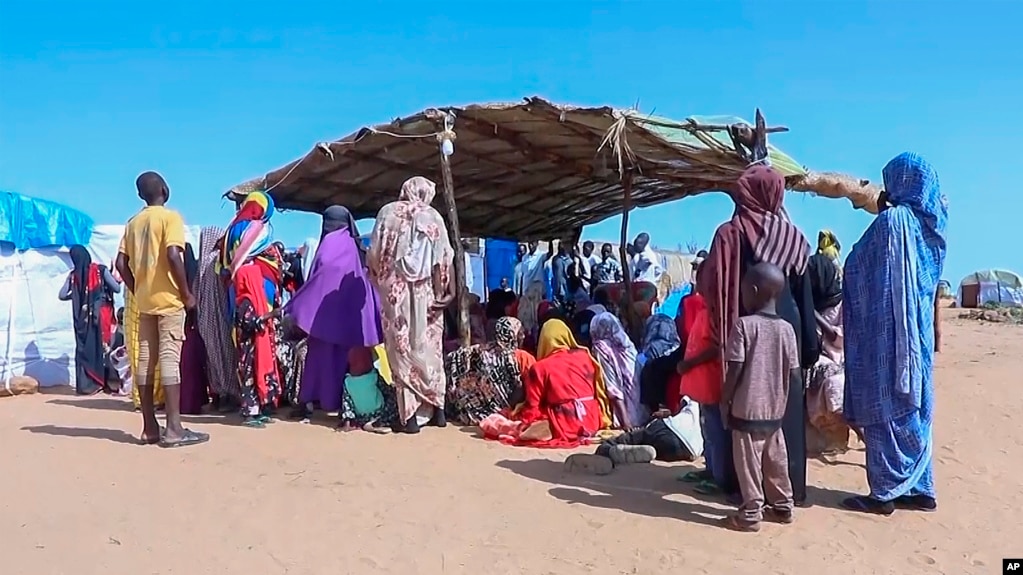
Oct 16, 2024
WASHINGTON - Myanmar and China have the world’s worst internet freedom, with declines reported in a number of other countries led by Kyrgyzstan, a study said on Oct 16.
The further deterioration in Myanmar, a Beijing ally where the military seized power in 2021, marks the first time in a decade that any country has matched China for the lowest score in the Freedom on the Net report.
The report by Freedom House, a pro-democracy research group funded by the US Congress but run independently, found that internet freedom fell for the 14th straight year globally, with more countries seeing declines than rises.
In Myanmar, the junta has harshly cracked down on dissent since ending a decade-long experiment in democracy, with systematic censorship and surveillance of online speech.
Freedom House pointed to new measures imposed by the junta in May to block access to virtual private networks, which residents use to bypass internet controls.
China has developed a sweeping “great firewall” meant to root out content that poses a threat to the ruling Communist Party.
Asked about the report on Oct 16, Beijing insisted its people “enjoy various rights and freedoms in accordance with the law”.
“As for the so-called report, I think it is entirely baseless and made with ulterior motives,” foreign ministry spokeswoman Mao Ning said.
The country that showed the biggest drop in the survey was Kyrgyzstan, where the authorities shuttered website Kloop, which is largely funded by US-based non-governmental organisations and had reported on allegations by an opposition leader of torture in custody.
Other countries downgraded included Azerbaijan – host of the COP29 climate summit in November – for detaining people over social media posts, and Iraq, where a prominent activist was slain after Facebook posts encouraging protests.
The biggest gains were seen in Zambia, with the report saying the country saw growing space for online activism.
Iceland was ranked the most free online, followed by Estonia and then Canada, Chile and Costa Rica.
The United States meanwhile held steady at 76 on a 100-point scale, with Freedom House renewing concern about the lack of safeguards against government surveillance.
It also pointed to actions by at least 19 US states against the misuse of artificial intelligence in election campaigns.
ByTurkish Minute
October 16, 2024
Turkey, where authorities frequently censor online content and harass individuals for their social media posts, has been ranked the lowest-scoring country in Europe for online freedoms, according to a report from the Washington-based Freedom House released on Wednesday.
Freedom House released its “Freedom on the Net 2024” report with the subtitle, “The Struggle for Trust Online.” The report covers the period from June 2023 to May 2024.
The report covers 72 countries in six regions around the world, which were chosen to illustrate internet freedom improvements and declines in a variety of political systems.
Turkey has a score of 31 in a 100-point index, with scores based on a scale of 0 (least free) to 100 (most free). The other two lowest-scoring countries in Europe are Hungary with a score of 69 and Serbia with 70
Iceland, Estonia and the Netherlands, on the other hand, are the highest scoring countries in Europe.
Ratings are determined through an examination of three broad categories: obstacles to access, limits on content and violation of user rights.
Turkey’s score in the 2024 index is slightly better than its score in the 2023 index, which was 30, however insufficient to save the country from the list of “not free” countries.
Gürkan Özturan, Freedom House’s Turkey rapporteur, associated the slight improvement in Turkey’s score with the absence of a natural disaster that devastated the country’s infrastructure, as in years before, while noting that internet freedom still remains under threat in Turkey.
Turkey was shaken by two powerful earthquakes in February 2023, which killed more than 53,000 people and caused massive devastation across more than a dozen provinces in the country’s south and southeast.
Turkish authorities restricted access to some social media platforms following the disaster under the pretext of preventing the spread of disinformation.
Özturan told the Balkan Insight news website that many online rights violations took place during the process leading up to the presidential and parliamentary elections in May 2023 and afterwards, including the blocking of access to news websites, digital platforms and other online content.
One day before the May 14 elections, X announced that it was restricting access in Turkey to certain account holders to ensure the platform “remains available to the people of Turkey,” a move seen by critics as giving in to President Recep Tayyip Erdoğan, who was seeking re-election.
X’s owner, Elon Musk, said Turkey had threatened to block the entire site.
The accounts that were restricted by X included those of Kurdish businessman Muhammed Yakut and investigative journalist Cevheri Güven. The timing of these restrictions, coming only a day before a critical election, raised concerns that the move was politically motivated, potentially stifling voices of dissent and impacting the election’s outcome.
Özturan said Turkey “set a bad example for the rest of the world” by standing out with negative examples in all five categories of arbitrary access blocking, blocking of social media and communication, blocking of access to news and arrests and physical attacks on users.
Turkish authorities have temporarily blocked access to social media sites, including Facebook, X, Wikipedia and most recently Instagram, which remained blocked for nine days in August and drew international condemnation.
President Erdoğan’s government is regularly accused of muzzling freedom of expression and cracking down on people who express criticism of his government on social media.
Thousands of people face investigation, prosecuted and given prison sentences in Turkey for expressing their views, disliked by the government, on social media platforms.
Meanwhile, a media law, known as the “disinformation law,” passed by the Turkish parliament in October 2022 is also seen as contributing to the declining internet freedoms in the country as reporters and social media users could be jailed for up to three years for spreading “fake news.”
Research by Freedom House also revealed that global internet freedom has declined for a 14th year and that 41 governments blocked content online, 56 governments arrested users for online expression and users faced retaliatory violence in a record high of 43 countries.











